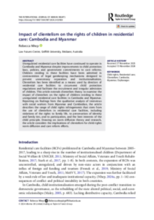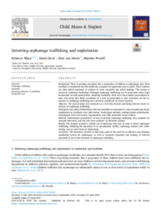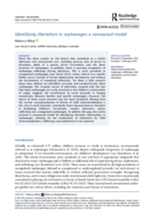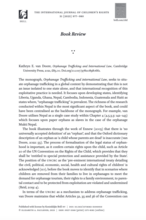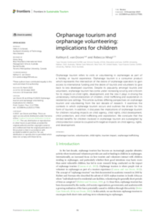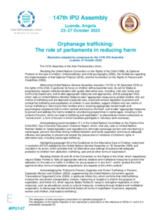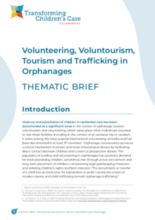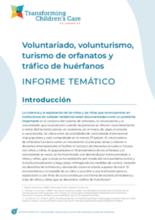Displaying 11 - 20 of 141
Although orphanage trafficking can be prosecuted under legal frameworks in some jurisdictions, including Cambodia, there have been limited prosecutions to date. One factor that likely contributes to a lack of prosecution is poor detection, yet the indicators of orphanage trafficking have not been considered by extant research. The current study was conducted as a first step towards providing evidence-based indicators of orphanage trafficking.
Around the world, millions of children are growing up in orphanages, or children's homes as they are called in many places. But research has shown that the vast majority of them, actually have families.
This article presents a conceptual model for identifying clientelist relationships in orphanages, allowing for the implications of clientelism for child institutionalisation, trafficking, and exploitation to be explored.
This book review is written by Elizabeth Faulkner of author Kate Kathryn E.
This article outlines differing perspectives on orphanage tourism and volunteering from the last decade of research. It examines the contexts in which orphanage tourism occurs and outlines the drivers for this form of tourism. In addition, it discusses the implications of orphanage tourism for children including impacts on child agency, child rights, child development, child protection, and child trafficking and exploitation.
This resolution on orphanage trafficking was adopted by consensus at the 147th IPU Assembly and endorsed by 180 parliaments.
This thematic brief contains guidance on key policy measures and concrete steps that may assist with the development and implementation of a whole-of-government strategy to eliminate orphanage tourism and voluntourism and to combat orphanage trafficking. It includes recommendations relevant to volunteer-sending and volunteer-receiving countries. In addition, it contains practical examples of effective measures from a diverse range of countries sending and receiving volunteers.
Este Informe Temático sobre voluntariado, volunturismo, turismo de orfanatos y tráfico de huérfanos fue elaborado para aportar lineamientos a los Gobiernos, los responsables de políticas y otros responsables de la toma de decisiones. También respalda la implementación de los compromisos internacionales asumidos en el contexto de la Resolución de la Asamblea General de la ONU 2019 sobre los Derechos de los niños y las niñas privados del cuidado parental. Explica de qué modo tomar las medidas apropiadas para abordar y prevenir los daños asociados al voluntariado en orfanatos, el turismo de orfanatos y el volunturismo, y al tráfico de huérfanos vinculado con las actividades anteriores.

